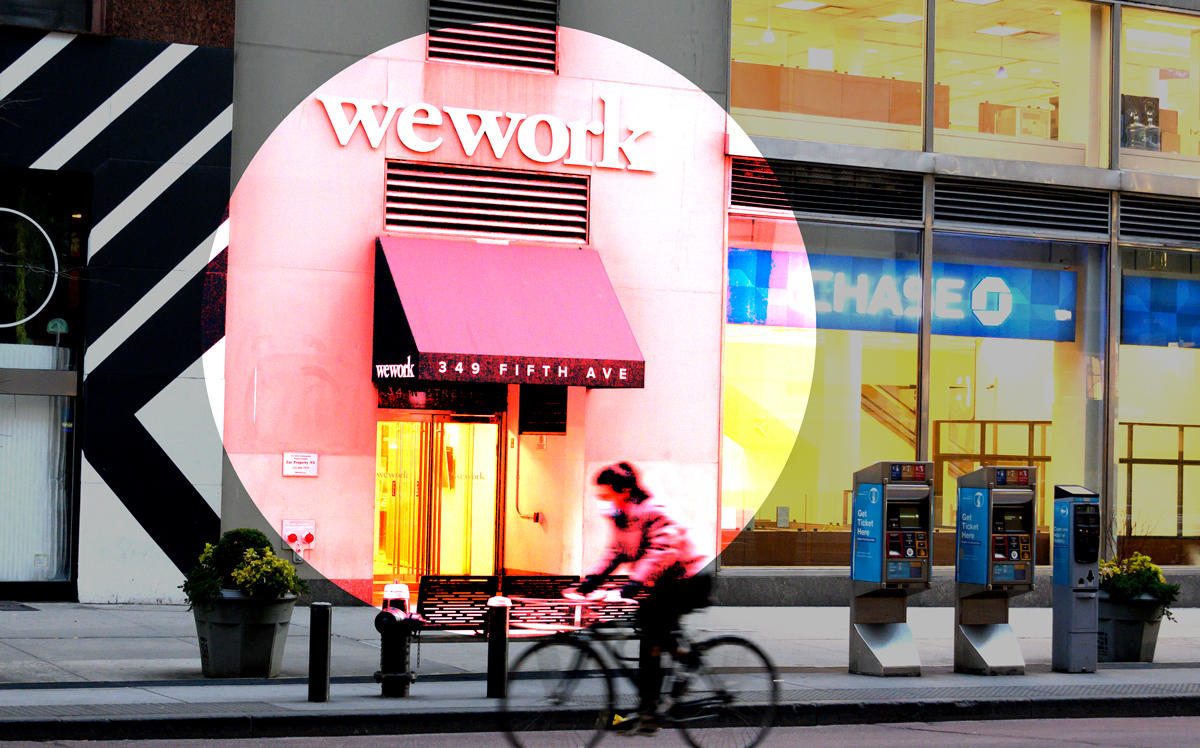WeWork is facing scrutiny for its decision to keep all its co-working spaces in New York City open as confirmed cases of Covid-19 surge.
The co-working giant, which has reported several coronavirus cases at its locations, told its customers that it stayed open because some of them operated essential businesses, which were exempt from the governor’s sweeping stay-home order announced March 20. WeWork said its mail service also exempted it from the order.
The firm declined to comment on how many of its members were classified “essential,” or what locations those businesses worked from. The company has implemented a work-from-home policy with its own staff, but is offering $100-a-day bonuses to those who choose to come into the locations.
Some WeWork members have argued the firm should close its sites and temporarily waive fees while the pandemic plays out.
“They are putting all the members’ lives at risk while trying to keep their employees safe at home just to continue to profit off many small business owners,” one member told The Real Deal in an email, adding that there had been a virus case at the WeWork location where she rented space.
SoftBank’s Marcelo Claure addressed the controversy in a tweet March 18.
“We know there have been questions about WeWork’s response to the coronavirus pandemic, particularly as it relates to WeWork spaces that have remained opened in certain cities around the world,” he wrote. “In the same way we expect certain businesses to remain open for us … we too have members counting on us to remain open so they can run their companies to generate revenue, pay their people, and continue serving their customers.”
WeWork is not the only co-working firm claiming essential-business status. Serendipity Labs, which has a location at 28 Liberty Street, told The Real Deal that all of its sites were registered as commercial mail-receiving agencies, meaning they were exempt from stay-home orders. Serendipity CEO John Arenas said the reason for the designation was to manage mail for members. It also allowed the company to provide members with access to the locations in case they were also exempt, or had “an emergency need.”
The governor’s office did not respond to questions about the validity of co-working companies claiming the essential-business exception despite not being expressly included in the public list. Several real estate lawyers told The Real Deal that unless the companies had applied to be considered as essential businesses, the claim was tenuous.
Read more



Covid-19 has battered the economy over the past two weeks and created division in the co-working industry about whether to temporarily shut locations and forsake member payments or keep sites open and risk further transmission of the virus.
The Wing, a women-only co-working firm with several locations in New York, closed all of its 11 spaces from March 14 until March 31, and will consider extending that period. It has suspended member payments while the sites are closed, a spokesperson said.
The company is now offering virtual events and has volunteered to donate its physical locations for relief efforts.
Convene, which has reportedly laid off 150 employees since the outbreak, closed most of its 32 locations across the U.S. and deferred fees for April.
“We are closely following the guidance from the CDC and the local authorities to determine when our teams will return to our locations,” a Convene spokesperson said in a statement.
Knotel, which reached a valuation of $1 billion last year, said last week that 80 percent of customers were working remotely. On Friday, the flex office company laid off or furloughed 195 of its 400 employees.
“Business as usual is over,” Knotel CEO Amol Sarva told Commercial Observer. “[The pandemic] isn’t short and we’ve decided that we’re going to take some sharp action ourselves on this. We’re going to prepare for the worst case.”
Shlomo Silber, co-founder and CEO of Bond Collective, said its locations were “essentially closed.” (It has six in New York City.) Though they are technically open to accept packages, Bond Collective offices have been unstaffed for two weeks. Most members are staying home, and the company is encouraging them to do so.
Last week, Silber said Bond agreed to suspend about 10 percent to 15 percent of memberships, and is offering a 25 percent discount across the board for April and May dues. “If someone has a hardship, we’re working with them on a case-by-case basis,” he said.
“A lot of that is to keep our company alive, to cover our payroll, and make sure when we get out of this [health crisis] we are able to get out of this,” said Silber, who estimated that company revenue is likely to drop 50 percent in April.
As the fast-moving pandemic triggers momentus social and political change on a daily basis, it’s unclear if WeWork will reconsider its position on operations or fees in the coming weeks. In a statement to TRD, a spokesperson hinted at the possibility, noting that the company will “continuously evolve our plans.”
On Thursday, WeWork laid off 250 staffers in its development department.
Write to Sylvia Varnham O’Regan at so@therealdeal.com and EB Solomont at eb@therealdeal.com
